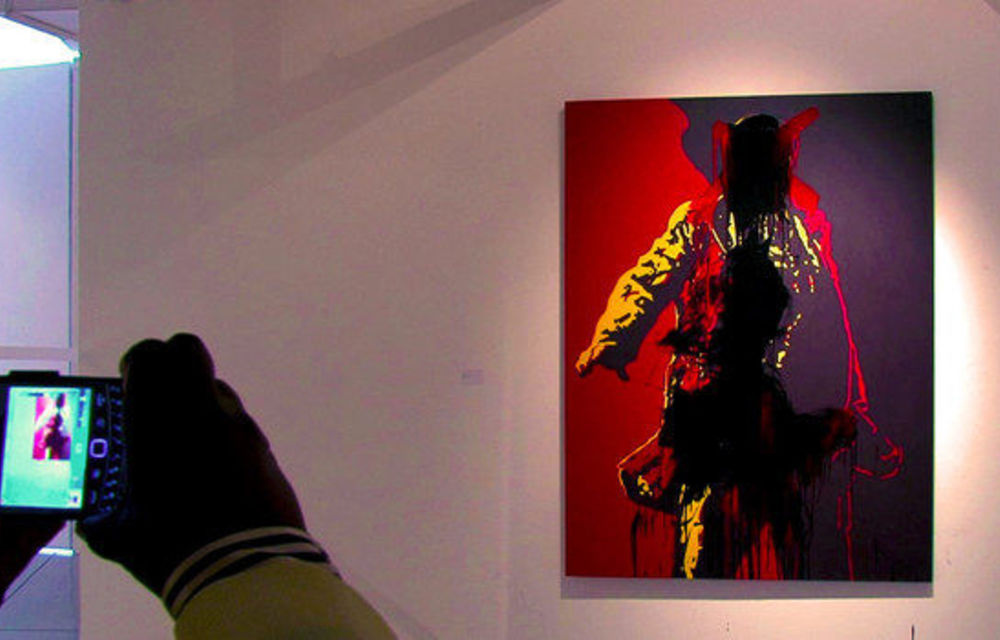
The Film and Publications Board (FPB) has created, albeit temporarily, one hell of a mess.
Its decision to make it illegal for anyone to show The Spear to children under the age of 16 without prior warning will be overturned. In the meantime, though, it has made a strong case for online censorship – and that never ends well.
If the FPB’s decision ever makes it to judicial review before a high court (which it shouldn’t, if internal appeal mechanisms work as advertised), the judgment will be harsh. The board has stepped well outside its mandate, ignored both its founding legislation and the Constitution and conducted a process fraught with procedural irregularities.
But reaching the point where a judge tells the FPB so could take months and in the meantime the decision has some legal force. That means local websites, website hosts and internet access providers are obliged to take action. Unfortunately the only viable action for them to take is to point out that only the government has the scope, and perhaps the mandate, to filter the web.
There is only one proven form of age verification online. Demanding a valid credit card number filters out children not eager or savvy enough to get hold of a parental wallet, at least, at the price of denying access to anyone without the financial means to obtain a credit card, or who simply don’t care for that method of payment.
Even that, though, is meaningless when dealing with something as widely distributed as pictures of The Spear.
Though the FPB is welcome to send a take-down notice to Wikipedia, for instance, it is unlikely to get the time of day. The vast majority of South African internet traffic crosses the border to get to services such as YouTube, Google and Facebook.
A South African 16N rating, with an impossible 100% successful implementation locally, would still only have a statistically negligible impact on the number of 15-year-olds who get to see the presumed presidential penis.
Yet it is possible to protect children against accidentally stumbling across penises, presidential or otherwise, online – in theory. And sometimes making that theory a reality is the genuine motive behind attempting online censorship.
In the end it doesn’t matter. Whether the starting point is religious, social or political, the result is inevitably the same: a design for an implementable, technically flawed system ripe for abuse.
And this lesson, it seems, South Africa will have to learn a second time.
In 2002, the communications department, under late minister Ivy Matsepe-Casaburri and now-businessman Andile Ngcaba, pulled off a coup. It managed to corner the market on online policing, establishing in law provision for a cyber-inspectorate, entirely under the control of the department, with policing powers.
Behind the scenes, departments that deal with censorship (such as home affairs), children (in the social cluster) and justice (in the security cluster) complained bitterly. Not about the idea of people paid to surf the web looking for, say, child pornography, but because they didn’t get there first.
Policing online content is a massive, labour-intensive job that promises some easy wins. It presented a great opportunity to argue for new budgets and increase the power and scope of the department that owned it.
The legal provision was never implemented, at least in part because of manoeuvring by competing departments, but remains on the books.
In some instances technology companies are the ones who twist the idea of online censorship out of true. Policing only servers that fall within local jurisdiction is senseless; anything else is costly.
A national filter, or coordinated filters implemented at the level of first-tier internet service providers, would require an enormous initial investment in hardware and systems, and a vast ongoing budget to maintain.
Eagerness for a piece of that action has, in various instances around the world, seen everything from fake grassroots campaigns to bribed politicians and the result has been plans so fundamentally flawed that technologists can only gape in wonder.
No matter how padded the tender or vast the scope, no internet censorship scheme has ever worked. The powerful entertainment lobby in the US hasn’t been able to make it work, not even by using the online equivalent of paramilitary action.
Politically suppressive regimes such as Iran haven’t been able to make it work, not even with the willing participation of communications providers and the threat of arrest and torture to back it up. Not even China, which is presumed to rely on teams of thousands of people dedicated to the task, has come close to filtering a fraction of the content it deems unsuitable for its population.
The odd country out is North Korea, which has proven there is one sure-fire way to prevent citizens from accessing potentially harmful (to the state, in that case) content: wall yourself off entirely from the rest of the world.